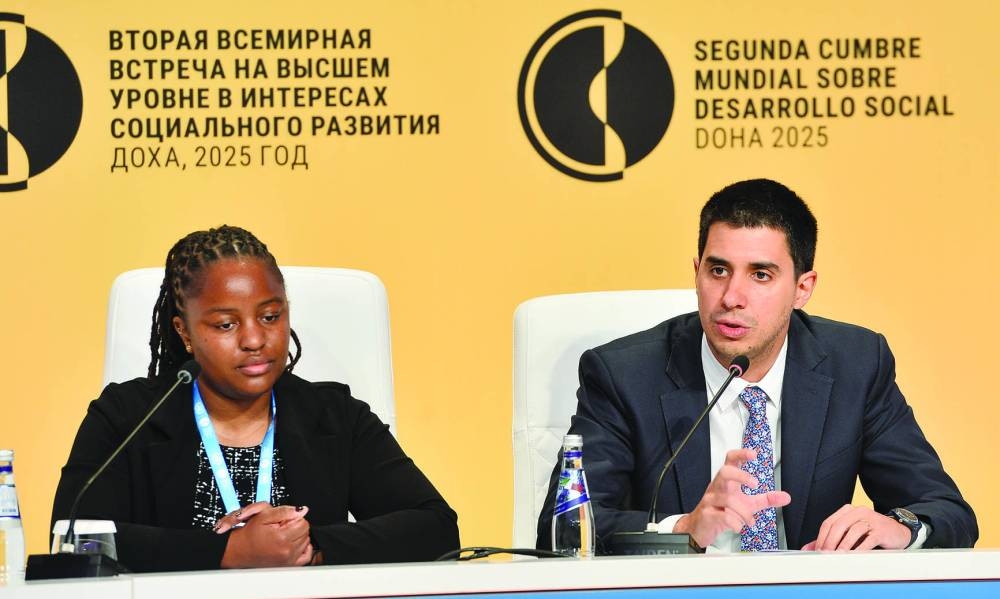
The Trump administration is having a huge negative impact on global organizations advocating for gender equality, mental health, and social inclusion, among others

Among other highly impacting decisions, President Trump is now seeking to purge the federal government of “woke” initiatives, with agencies flagging hundreds of words to prohibit or limit – Adapted by Dianova, background photo by Michael Schofield on Unsplash
Introduction
The return of Donald Trump to the White House has introduced a wave of policy reversals and restructuring that significantly impact global organizations such as the World Health Organization (WHO), UN Women, and international civil society organizations (CSOs) advocating for gender equality, mental health, diversity, and social inclusion.
New federal directives have led to the withdrawal of U.S. participation in key international programs, restrictions on terminology, and drastic funding cuts to development and humanitarian initiatives. These changes have profound implications for families, communities, economic and social development policies, and vulnerable regions worldwide.
U.S. Withdrawal from the World Health Organization (WHO)
One of the most controversial decisions under the new Trump administration was the formal withdrawal of the United States from the WHO on January 21, 2025. This move follows a previous attempt during Trump’s first presidency, which was reversed by the Biden administration.
The withdrawal significantly impacts global health initiatives, including pandemic preparedness, mental health support programs, and maternal health services.
Implications:
- Families and Communities: Without U.S. financial contributions, WHO programs in low-income countries face severe funding shortfalls, leading to reduced vaccination campaigns, limited maternal and child healthcare services, and setbacks in mental health advocacy.
- Economic and Social Development Policies: The absence of U.S. leadership weakens international coordination on disease surveillance and global health security, increasing the risk of future pandemics and health crises.
- Vulnerable Regions: African and South Asian countries, heavily reliant on WHO support, are expected to experience medical supply shortages and reduced healthcare accessibility, further exacerbating existing inequalities.
Cancellation of USAID Development Programs
A report from Reuters revealed that the Trump administration has already canceled 83% of programs under the United States Agency for International Development (USAID), leading to the termination of over 5,200 contracts.
Implications:
- Families and Communities: These cuts directly affect humanitarian aid, including food security programs, water sanitation projects, and education initiatives in developing countries, impacting millions of vulnerable children and families.
- Economic and Social Development Policies: The withdrawal of U.S. support reduces the capacity of local governments and NGOs to provide essential services, potentially destabilizing fragile economies.
- Vulnerable Regions: Nations in Latin America, Africa, and the Middle East, which depend on USAID for infrastructure development, disaster relief, and economic growth projects, will suffer the most.
Defunding of Diversity, Equity, and Inclusion (DEI) Programs
The Trump administration has directed U.S. agencies to halt funding for diversity, equity, and inclusion (DEI) programs within international organizations like UN Women and UNICEF. A Reuters report confirms that organizations that continue promoting DEI initiatives risk losing U.S. financial contributions.
Implications:
- Families and Communities: Women, LGBTQ+ individuals, and marginalized communities will face increased discrimination as resources for gender-sensitive programs decline.
- Economic and Social Development Policies: The rollback of DEI efforts threatens global progress in workplace equality, leading to a potential increase in gender wage gaps and workplace discrimination.
- Vulnerable Regions: Developing nations, where UN-funded gender and inclusion initiatives play a critical role in social progress, will be most affected.
Restrictions on Terminology in Federal Communications
A directive from the Trump administration has instructed federal agencies, including the FDA, to avoid using terms such as “woman,” “disabled,” and “elderly” in official communications.
Implications:
- Families and Communities: By restricting the use of these terms, policies that specifically protect vulnerable groups may become harder to justify, leading to weakened advocacy for gender and disability rights.
- Economic and Social Development Policies: The silencing of gender and disability issues could lead to reduced legislative support and public funding for social welfare programs.
- Vulnerable Regions: Countries that model their policies on U.S. frameworks may adopt similar restrictions, impacting global human rights advocacy.
U.S. Withdrawal from Climate Compensation Fund
Another significant move by the Trump administration is the withdrawal of the U.S. from the UN-backed Climate Compensation Fund, which provides financial aid to nations most affected by climate change.
Implications:
- Families and Communities: Countries prone to climate disasters will have fewer resources to rebuild communities, exacerbating poverty and displacement.
- Economic and Social Development Policies: The lack of U.S. funding will slow down climate resilience projects, making it harder for developing nations to transition to sustainable economies.
- Vulnerable Regions: Small island nations and low-lying coastal regions, already facing rising sea levels and extreme weather events, will bear the brunt of this decision.
Impact on Ongoing UN Discussions on Gender and Mental Health
This month, key discussions at the United Nations Office on Drugs and Crime’s 68th Commission on Narcotic Drugs (CND68) in Vienna are addressing gender perspectives in substance use challenges under a human rights lens.
Furthermore, next week, the UN Commission on the Status of Women’s 69th session (CSW69) will focus on mental health access for women facing violence.
Implications:
- Families and Communities: The U.S. stance on these issues weakens international commitments to protecting vulnerable women and individuals affected by substance use disorders and gender-based violence.
- Economic and Social Development Policies: If major funding sources are withdrawn, mental health services and gender-specific recovery programs may struggle to sustain operations worldwide.
- Vulnerable Regions: Regions in Europe, Asia, Africa, Latin America, and even marginalized communities within the U.S. will face heightened barriers to accessing critical services related to addiction recovery and gender-based violence protection.
Conclusion
The policies introduced by the new Trump administration mark a significant shift in U.S. engagement with global development, health, gender equality, and climate action.
These changes not only affect international organizations but also have cascading effects on families, communities, economic and social policies, and vulnerable regions worldwide.
As global advocacy groups, governments, and civil society organizations navigate this new landscape, the challenge will be finding alternative funding sources and policy frameworks to sustain essential initiatives in the face of U.S. withdrawal.
What are your thoughts on these policy changes? How do you think they will shape global human rights, social inclusion, and gender equality?
Join the conversation and share your perspectives!
#GlobalRightsAtRisk #EqualityUnderThreat #ProtectHumanRights #DefendInclusion #ActForJustice
link






